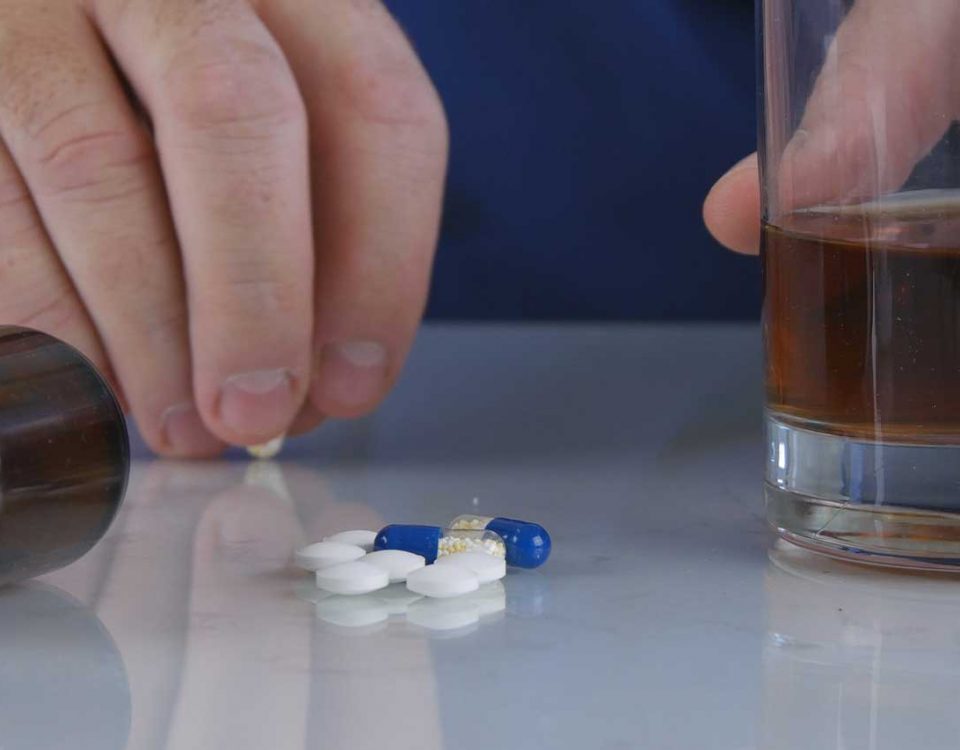In the complex landscape of medication usage, clonidine stands as a potent remedy for conditions ranging from hypertension to attention deficit hyperactivity disorder. However, like any medication, the line between therapeutic use and potential harm is delicate. Banyan Treatment Centers Stuart delves into the critical topic of clonidine overdose, exploring its risks, symptoms, and the crucial question of whether it can be fatal. As we unravel the layers of this medical concern, we will also shed light on the essential aspect of clonidine overdose treatment.
Can You Overdose on Clonidine?
Clonidine, a medication commonly prescribed to treat high blood pressure and attention deficit hyperactivity disorder (ADHD), can be beneficial when used as directed and under medical supervision. However, as with many pharmaceuticals, there is a risk of overdose. It is sold under the brand names Catapres, Kapvay, and Nexiclon XR. People taking clonidine should be aware of the warning signs and symptoms of overdose and the risks involved.
Clonidine overdose symptoms can include:
- Extreme drowsiness: Clonidine, when taken in excess, can lead to profound sedation and drowsiness.
- Low blood pressure: Overdosing on clonidine may result in a dangerous drop in blood pressure, leading to dizziness and fainting.
- Slowed heart rate: The medication's impact on the cardiovascular system can manifest as bradycardia, characterized by an unusually slow heart rate.
- Confusion: Cognitive impairment and confusion are common symptoms of clonidine overdose.
- Difficulty breathing: Respiratory depression may occur, making breathing difficult.
If you or someone you know experiences these symptoms, it is crucial to seek immediate medical attention. Clonidine overdose can have grave consequences, and prompt intervention is essential.
How Much Clonidine Does It Take to Overdose?
A person's age, weight, general health, and medication tolerance can all have a significant impact on the precise amount of clonidine needed to cause an overdose. When the recommended dosage is exceeded, or the medication is misused, clonidine overdoses are typically more likely to happen. It is critical to follow the doctor's recommended dosage exactly and to refrain from self-adjusting medication without first visiting a physician. Because of the relatively small therapeutic range of clonidine, even a slight increase in dosage can result in side effects or symptoms of an overdose.
Can You Die From Clonidine Overdose?
Yes, a clonidine overdose is potentially fatal. The central nervous system and the cardiovascular system are the main organ systems affected by clonidine. Excessive consumption of it may result in severe depression of the central nervous system, exhibiting symptoms like severe fatigue, disorientation, and even unconsciousness. Furthermore, clonidine has the potential to cause cardiovascular collapse by dangerously lowering blood pressure and slowing the heart rate. Regarding clonidine overdose death, respiratory depression—a condition in which breathing becomes dangerously shallow and sluggish—is another major concern. When these effects come together, they can cause a medical emergency that could be fatal if it is not treated right away.
Medical professionals can stabilize vital signs and counteract the medication's effects by administering appropriate treatments. People, caregivers, and medical professionals must stay aware of the warning signs of clonidine overdose and take prompt action to reduce the potentially fatal risks. Preventing such dire consequences requires constant communication with healthcare providers and strict adherence to recommended dosages. If your loved one requires such support, we encourage you to contact our Florida Rehab today.
What Does Clonidine Overdose Treatment Involve?
In a clonidine overdose, prompt and comprehensive medical treatment is critical to avoid potentially fatal complications. The goal of the treatment plan is to quickly address symptoms, stabilize vital signs, and undo the effects of the overdose. Anyone experiencing or witnessing symptoms of a clonidine overdose must seek emergency medical attention right away.
Treatment measures for someone who is overdosing on clonidine include:
- Gastric lavage: In some cases, healthcare professionals may perform gastric lavage (stomach pumping) to remove any remaining clonidine from the digestive system.
- Activated charcoal: Administering activated charcoal may help absorb the excess clonidine in the stomach and prevent further absorption into the bloodstream.
- Intravenous fluids: Hydration through intravenous fluids can counteract the potential drop in blood pressure associated with clonidine overdose.
- Atropine: In certain situations, atropine may be administered to counteract the bradycardia (slow heart rate) induced by clonidine.
- Naloxone: While not a standard treatment, naloxone, commonly used for opioid overdoses, may be considered in cases of respiratory depression associated with clonidine overdose.
It is crucial to remember that the specific treatment plan might change depending on the overdose's severity and the patient's general health. To guarantee the efficacy of the treatment and to handle any complications that might occur during the recovery process, supportive care and ongoing monitoring are essential components.
In conclusion, reversing the medication's toxic effects and stabilizing the patient's condition are the goals of the multifaceted approach used in the treatment of clonidine overdose. Immediate action and collaboration with medical experts are crucial to maximize the chances of recovery and reduce the possibility of long-term effects from clonidine overdose.
Conquer Prescription Drug Abuse With Banyan Stuart
In the pursuit of a healthier, substance-free life, knowledge serves as a powerful ally. At Banyan Stuart, we understand the intricate challenges posed by prescription drug abuse, including the potential risks associated with medications like clonidine. Our medical detox and prescription drug treatment programs are designed to offer real help to those grappling with substance misuse. Instead of navigating the complexities of recovery alone, individuals can turn to our Florida rehabs for a straightforward and supportive approach to overcoming prescription drug abuse.
Our medical detox program emphasizes safety and professional monitoring during the withdrawal process, while our prescription drug treatment program employs practical, evidence-based strategies to address the roots of addiction. The Stuart, Florida, Banyan Treatment Center is committed to assisting individuals on their journey toward recovery without unnecessary drama. By choosing our services, individuals can access a more balanced and pragmatic path to conquering prescription drug abuse.









